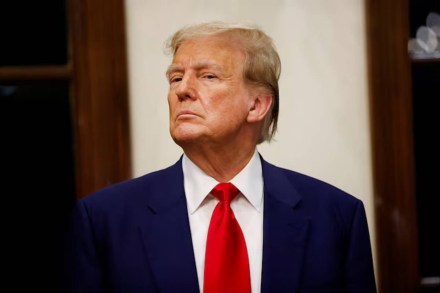After Donald Trump has turned a friendly nation, Colombia, into a foe by imposing sanctions and 25% tariffs over migrant flights dispute.
In a major move, Colombian President Gustavo Petro has announced the introduction of 25% tariffs on a range of imports from the United States. The decision, is a shift in the country’s trade agenda and could have a wide impact on its economic ties with its largest trading partner, as reported by Barrons.
In a dramatic turn of events, Colombia has become the first country to reject US deportation flights, offering instead its own planes to bring back Colombians living illegally in the US. The move comes as tensions rise between the two nations, with the US responding by imposing significant tariffs and sanctions.
Colombia Takes a Stand
The controversy began when Colombian President Gustavo Petro announced that his government would not accept two US Air Force flights carrying deported Colombian migrants. Petro’s decision was based on reports that migrants were being treated poorly, including being restrained with handcuffs and shackles. He argued that migrants deserve dignity and should not be deported like criminals.
In a statement on social media, Petro said, “A migrant is not a criminal and must be treated with dignity.” He also emphasized that Colombia would accept its citizens back, but only through civilian planes not military aircraft.
US Retaliates with Tariffs and Sanctions
In response, US President Donald Trump ordered harsh measures against Colombia, including a 25% tariff on all products from Colombia, set to increase to 50% in a week. The tariffs target Colombia’s main exports such as coffee, flowers, and textiles, which are heavily reliant on the US market.
Trump also announced visa restrictions on Colombian officials, their families, and supporters of Petro’s government. He justified these actions by saying that Petro’s refusal to accept deportation flights endangered US national security. “These measures are just the beginning,” Trump warned, signaling a long-term escalation in tensions.
The Economic Impact
The new tariffs are expected to hit Colombia’s economy hard. As the America’s biggest trading partner, Colombia depends on the export of goods like flowers and coffee, and the new duties could make these products less competitive in US markets. The country could see a sharp decline in exports as prices rise, potentially hurting Colombian businesses and jobs.
Additionally, the visa restrictions could disrupt travel between the two countries, further straining economic ties. The US has already suspended visa processing for Colombian citizens, affecting thousands who rely on travel for business, education, or family reasons.
Defiant Response
Despite the US sanctions, President Petro has remained firm in his position. He criticized the US approach to migration, calling for a more humane treatment of migrants. Petro also pointed out that there are over 15,000 US citizens living in Colombia illegally, urging the US to address its own immigration issues.
“We must defend the dignity of Colombians and migrants,” Petro declared, signaling that his government will not back down in the face of US pressure.
Tensions Grow
The tension between Colombia and the US marks a significant shift in their long-standing relationship, which has traditionally been close due to trade, security cooperation, and the fight against drug trafficking. With the US imposing tariffs and sanctions, Colombia now faces the challenge of balancing its sovereignty and human rights stance with the economic realities of its relationship with the US
The conflict also highlights the broader migration crisis in the region. As the number of migrants passing through the Darien Gap between Colombia and Panama increases, the issue of migration remains unresolved. Both the US and Colombia must find a way to cooperate on this critical issue, but for now, relations are at an all-time low.
